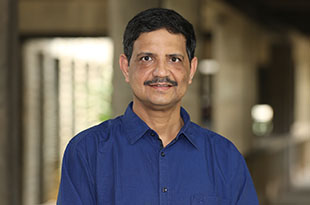Journal Article: 'The Caste-Dirt Conundrum: Decoding Caste's Impact on Dirty Workers' Experiences & Response to Stigma' - Prof. Sushanta K. Mishra

ABSTRACT: The term dirty work was pioneered by the American sociologist Everett Hughes to describe roles, tasks, or occupations that are seen as disgusting, demeaning, or distasteful due to their association with physical, moral, or social taints. Society views the individuals who perform this work as if they personify their work’s negative qualities and stigmatize them as dirty workers. Over the years, the scholarly interest in understanding different facets of dirty work has increased. Scholars have tried to uncover the features of dirty occupations, the challenges faced by dirty workers, and the strategies they utilize to manage the taint. These studies assume that dirty work is an occupational-level threat. Consequently, dirty workers collectively perceive, experience, and respond to this threat. As a result, dirty work’s embodied aspects, including how the differences in the meanings ascribed to the dirty workers’ bodies influence how they encounter their work, have been overlooked. In our qualitative study, we attempt to fill this void by exploring the influence of caste dynamics on dirty workers’ perceptions and work experiences. Based on the grounded theory approach, we interviewed 55 dirty workers. The findings from our study reveal that workers have distinct beliefs regarding the extent to which they consider a dirty occupation to be “theirs” versus “others,” and these beliefs, in turn, guide their choice of strategy for navigating the stigmatization surrounding them and their work.
Authors’ Names: Divya Tyagi and Sushanta Kumar Mishra
Journal Name: Academy of Management
URL: https://journals.aom.org/doi/abs/10.5465/AMPROC.2023.236bp
Journal Article: 'The Caste-Dirt Conundrum: Decoding Caste's Impact on Dirty Workers' Experiences & Response to Stigma' - Prof. Sushanta K. Mishra
ABSTRACT: The term dirty work was pioneered by the American sociologist Everett Hughes to describe roles, tasks, or occupations that are seen as disgusting, demeaning, or distasteful due to their association with physical, moral, or social taints. Society views the individuals who perform this work as if they personify their work’s negative qualities and stigmatize them as dirty workers. Over the years, the scholarly interest in understanding different facets of dirty work has increased. Scholars have tried to uncover the features of dirty occupations, the challenges faced by dirty workers, and the strategies they utilize to manage the taint. These studies assume that dirty work is an occupational-level threat. Consequently, dirty workers collectively perceive, experience, and respond to this threat. As a result, dirty work’s embodied aspects, including how the differences in the meanings ascribed to the dirty workers’ bodies influence how they encounter their work, have been overlooked. In our qualitative study, we attempt to fill this void by exploring the influence of caste dynamics on dirty workers’ perceptions and work experiences. Based on the grounded theory approach, we interviewed 55 dirty workers. The findings from our study reveal that workers have distinct beliefs regarding the extent to which they consider a dirty occupation to be “theirs” versus “others,” and these beliefs, in turn, guide their choice of strategy for navigating the stigmatization surrounding them and their work.
Authors’ Names: Divya Tyagi and Sushanta Kumar Mishra
Journal Name: Academy of Management
URL: https://journals.aom.org/doi/abs/10.5465/AMPROC.2023.236bp
